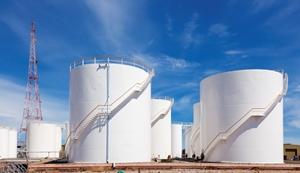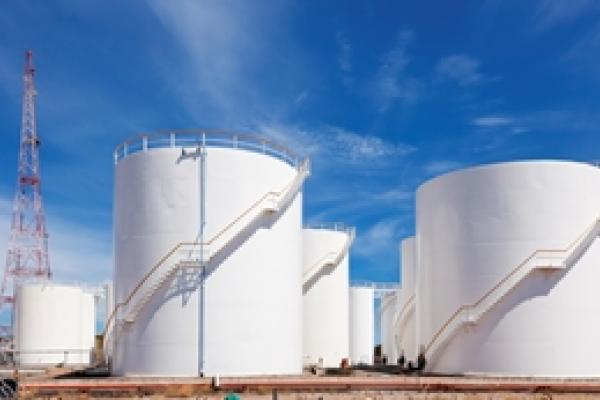
Steamship Mutual
Published: November 08, 2017

The appellant Charterers, Trafigura, were FOB buyers in a chain of contracts for the sale of crude oil. The chain included China Offshore Oil (Singapore) International Pte Ltd (COOSI), who sold to Vitol Asia Pte Ltd, who then sold to Vitol SA, who in their turn sold the Cargo to Trafigura. Trafigura chartered a vessel, “MV CRUDESKY”, from owners, to load the Cargo at a terminal operated by Total.
It was a government requirement that a representative of the Nigerian Department of Petroleum Resources (DPR) must be present at the terminal during loading and that documentary authorisation should be provided by the DPR office in Lagos. However when loading commenced, there was no representative present and the necessary documentation had not been obtained. Upon completion, the Vessel was not permitted to leave the Terminal as it did not have documentary evidence of loading the Cargo.
On 3rd September, laytime expired and the Vessel went on demurrage. On 7th September, the DPR accused Total of committing an economic crime and the Vessel was detained. A U.S.$12 million ‘fine’ was imposed on Total by the Nigerian Minister of Petroleum Resources. Total paid the fine on 13th October and the Vessel was released and sailed on 16th October.
The court considered two issues.
-
-
- Was the event that caused the delay at the Terminal beyond the reasonable control of Total or the contracting parties in the chain of contracts so that the Force Majeure clauses would operate?; and
- Was the chain of causation broken by the unlawful act of the Minister in seeking to impose the fine so that any liability of Vitol or COOSI was limited to the delay before 7th September?
-
The Charterparty was on BPVoy3 form and contained the following relevant clause:
‘21. Laytime/Demurrage/Force Majeure
Any delay(s) arising from… arrest or restraint of princes, rulers or peoples shall, provided always that the cause of the delay(s) was not within the reasonable control of Charterers or Owners or their respective servants or agents, count as one half laytime or, if the Vessel is on demurrage, at one half of the demurrage rate.’
At first instance, the Commercial Court judge found that the delay from 7th September to 16th October was caused by the unlawful actions of the Minister in imposing the ‘fine’. Consequently the delay arose from a ‘restraint of princes’ that was not within the reasonable control of either Total (terminal operators) or Trafigura (charterers). Trafigura could therefore rely on clause 21 to reduce the demurrage payable to owners.
However, the Court of Appeal disagreed. In their view the delay occurring to the Vessel was not beyond Total’s control. The Court considered that the Commercial Court judge had not taken sufficient account of the fact that there was an official channel of communication between Total in Lagos and the DPR in Lagos. The question was whether the delay was caused by circumstances beyond the reasonable control of Total as a complete entity and why Total Lagos had not obtained the necessary documentary authorisation.
The Court of Appeal concluded that Total had chosen not to follow the official channel of communication for obtaining loading clearance before the Vessel began to load. Rather, Total had allowed their representative to deal with the DPR representative in Port Harcourt and this was a choice which carried a risk:
‘Exercising a choice which carries a risk is doing something which is within one’s control. Using the usual channels which would carry no risk is also within one’s control. It was not beyond Total’s reasonable control to exercise one choice rather than another.’
The question then arose whether, even if the delay was within Total’s control, was it within the reasonable control of Trafigura or their ‘servants or agents’ as required under clause 21. As Trafigura had delegated loading responsibility to Vitol under the FOB sale contract, it was argued that Vitol were the agents of Trafigura.
However, in the Court of Appeal’s view, Total were the agents of Trafigura in relation to the loading of the Cargo for the purpose of clause 21. It was the intention of the charter that if anything went wrong with the loading operation, Trafigura would bear the liability and would look up the chain of contracts for an indemnity:
'… It would not be consistent with the concept of the charterers being responsible for defaults in loading, that they should be able to excuse themselves on the basis that the event causing the damage was outside the control of themselves or their immediate contracting party. By contracting with Vitol S.A., Trafigura initiated (or participated in) a chain of contracts which led to the actual loading of the vessel being done by Total. If the events that occurred were within the (reasonable) control of Total, then Trafigura should be contractually liable to the Owners of the vessel for the consequences of those events.'
Applying similar reasoning to the sale contract between Trafigura and Vitol, the Court of Appeal overturned the Commercial Court’s decision and found that the event that had caused the delay was within Vitol’s reasonable control.
The sale contract between Vitol and Trafigura was on the NNPC (Nigerian National Petroleum Corporation) terms and included:
Article 18.1
“Each party hereby agrees to comply and to procure its personnel, directors, agents, contractors, representatives and permitted assigns to comply with all laws, rules, regulation, valid directives and policies and bye laws applicable and necessary for the performance by each party of its obligations under this Contract.”
Article 21 (the Force Majeure clause)
“Neither the Seller nor the Buyer shall be held liable for failure or delay in the performance of its obligations under this Contract, if such performance is delayed or hindered by the occurrence of an unforeseeable act or event which is beyond the reasonable control of either party (“Force Majeure”) …"
Article 21 required the relevant event to be outside the reasonable control of Vitol, but also that it should be ‘unforeseeable’. In the Court of Appeal’s opinion, the word ‘unforeseeable’ did not add much to the concept of ‘within reasonable control’. They considered that it was certainly foreseeable that if loading took place without obtaining clearance through the official channels: ‘… questions would be asked and the vessel would not be allowed to leave until they were answered’.
It was also argued that as the clause referred to the event being beyond the reasonable control of ‘either party’ without any mention of their ‘servants or agents’, it was Vitol’s own reasonable control rather than Total’s which was relevant.
This was dismissed by the Court of Appeal. They held that as Vitol (as FOB sellers) were responsible for anything that went wrong during the loading operation, an act beyond Vitol’s control would include the act of any party to whom Vitol had delegated their contractual obligation, in this case Total.
They further held that Vitol were in breach of Article 18.1 which required it to ensure that their agents and contractors complied with all the rules necessary for the performance of their obligations under the contract. It would therefore be absurd if Vitol could exempt themselves from the consequences of that breach by reference to the Force Majeure clause when it was their own breach that caused the event in the first place.
Accordingly, Vitol could not rely on the Force Majeure clause in their contract with Trafigura, and Trafigura could pass their liability up the chain to their FOB seller, Vitol.
The Court of Appeal applied the same reasoning to decide that the cause of the delay was similarly within COOSI’s control under their contract with Vitol.
Overturning the Commercial Court’s decision, the Court of Appeal held that since COOSI had assumed responsibility for loading the Cargo under their FOB contract with Vitol, they could not rely on the Force Majeure clause in their sale contract unless they could show that the relevant events had been beyond the control of Total, being the party which discharged that responsibility on their behalf.
As the Court of Appeal had confirmed that the cause of the detention was within Total’s reasonable control so it followed that COOSI were liable to Vitol who in turn were liable to Trafigura.
Given that none of the Force Majeure clauses could be relied on, the Court of Appeal turned to consider whether the Minister’s abuse or arbitrary exercise of power was an intervening cause which displaced the original breaches of contract.
On the particular facts of this case, the Court of Appeal concluded that the chain of causation had not been broken. Notably the Court of Appeal referred to the fact that the authorities were entitled to investigate the incident so that there may have been delays even without the fine.
'If every arbitrary exercise of power in any country of the world where ships come and go were sufficient to displace serious breaches of contract, that might be an encouragement to lawlessness. It was never suggested that the loss from delay between 7th September and 17th October was too remote because it was not within the reasonable contemplation of the parties that the Nigerian authorities would take a very serious view of what had happened. The loss initially incurred up to 7th September is a justified claim and the loss thereafter has the same quality. Different considerations might arise if the shipowners had been fined and then sought to recover the amount of the fine but that has not happened here. I would hold that loss incurred by the delay has been caused by the initial breaches of contract.'
In conclusion, under the Charterparty, Trafigura were liable to pay demurrage in full to the owners. However, as none of the parties in the sale chain could rely on their contracts’ Force Majeure clauses, the demurrage claim could be passed up the chain to the respective sellers.
[The case discussed in this article is Great Elephant Corporation v Trafigura Beheer BV
(The “Crudesky”) Court of Appeal [2013] EWCA Civ 905.]


